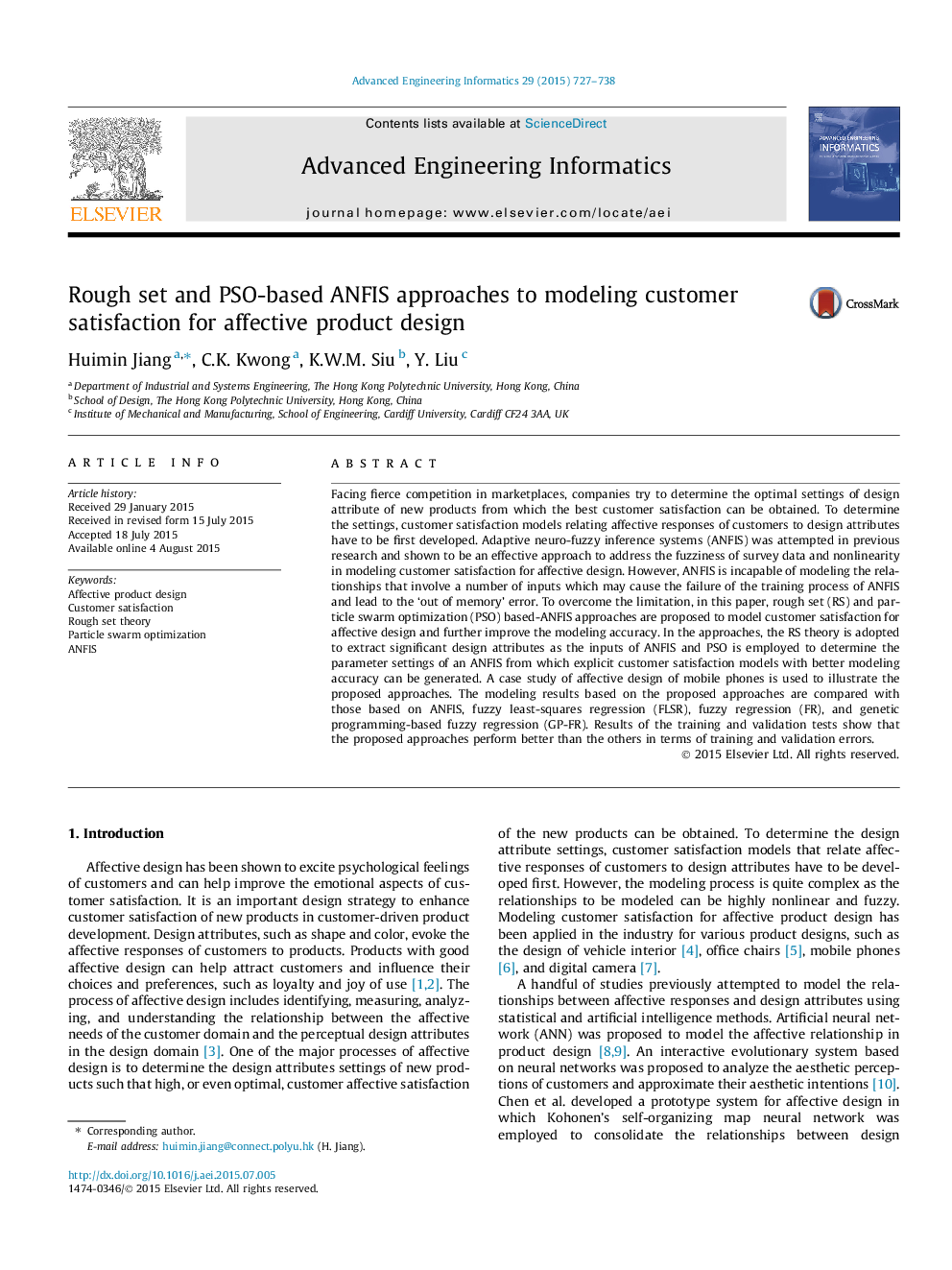| کد مقاله | کد نشریه | سال انتشار | مقاله انگلیسی | نسخه تمام متن |
|---|---|---|---|---|
| 10281725 | 501789 | 2015 | 12 صفحه PDF | دانلود رایگان |
عنوان انگلیسی مقاله ISI
Rough set and PSO-based ANFIS approaches to modeling customer satisfaction for affective product design
دانلود مقاله + سفارش ترجمه
دانلود مقاله ISI انگلیسی
رایگان برای ایرانیان
کلمات کلیدی
موضوعات مرتبط
مهندسی و علوم پایه
مهندسی کامپیوتر
هوش مصنوعی
پیش نمایش صفحه اول مقاله

چکیده انگلیسی
Facing fierce competition in marketplaces, companies try to determine the optimal settings of design attribute of new products from which the best customer satisfaction can be obtained. To determine the settings, customer satisfaction models relating affective responses of customers to design attributes have to be first developed. Adaptive neuro-fuzzy inference systems (ANFIS) was attempted in previous research and shown to be an effective approach to address the fuzziness of survey data and nonlinearity in modeling customer satisfaction for affective design. However, ANFIS is incapable of modeling the relationships that involve a number of inputs which may cause the failure of the training process of ANFIS and lead to the 'out of memory' error. To overcome the limitation, in this paper, rough set (RS) and particle swarm optimization (PSO) based-ANFIS approaches are proposed to model customer satisfaction for affective design and further improve the modeling accuracy. In the approaches, the RS theory is adopted to extract significant design attributes as the inputs of ANFIS and PSO is employed to determine the parameter settings of an ANFIS from which explicit customer satisfaction models with better modeling accuracy can be generated. A case study of affective design of mobile phones is used to illustrate the proposed approaches. The modeling results based on the proposed approaches are compared with those based on ANFIS, fuzzy least-squares regression (FLSR), fuzzy regression (FR), and genetic programming-based fuzzy regression (GP-FR). Results of the training and validation tests show that the proposed approaches perform better than the others in terms of training and validation errors.
ناشر
Database: Elsevier - ScienceDirect (ساینس دایرکت)
Journal: Advanced Engineering Informatics - Volume 29, Issue 3, August 2015, Pages 727-738
Journal: Advanced Engineering Informatics - Volume 29, Issue 3, August 2015, Pages 727-738
نویسندگان
Huimin Jiang, C.K. Kwong, K.W.M. Siu, Y. Liu,